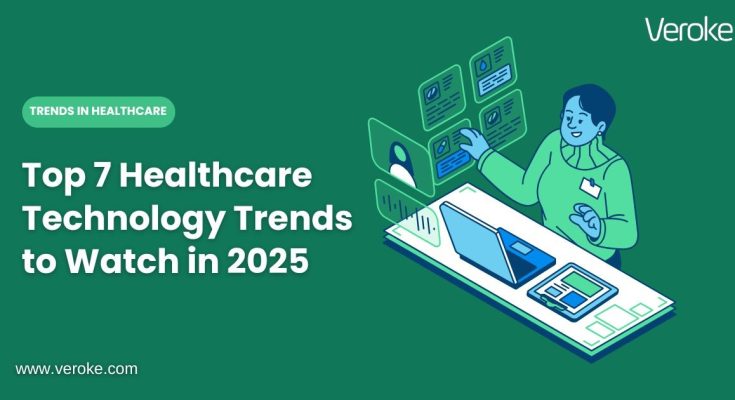As we move further into the decade, the landscape of health and wellness continues to evolve in response to technological advances, shifting consumer expectations, and a deeper understanding of human biology. The year 2025 promises to be a pivotal moment for the healthcare industry, marked by trends that will not only shape patient experiences but also influence how businesses and policymakers approach health in a holistic way. For professionals invested in business and innovation, understanding these emerging patterns is crucial—not just to stay competitive, but to seize opportunities in an increasingly health-conscious market.
One of the most compelling trends set to accelerate in 2025 is the integration of personalized medicine into everyday care. No longer confined to experimental treatments or high-end specialty clinics, personalized approaches are becoming more accessible due to advances in genetic testing, biomarker analysis, and data-driven insights. Companies and healthcare providers are harnessing this wealth of information to tailor treatments and preventive strategies specifically to an individual’s genetic makeup, lifestyle, and environment. For example, pharmacogenomics—the study of how genes affect a person’s response to drugs—is enabling doctors to prescribe medications with greater precision, reducing trial-and-error approaches and enhancing outcomes. This trend underscores a shift from a one-size-fits-all model toward customized health journeys that consider the unique needs of each patient.
Alongside personalized medicine, digital health technologies continue to revolutionize how care is delivered and monitored. The proliferation of wearable devices and remote monitoring tools has empowered individuals to take charge of their health in unprecedented ways. By 2025, these technologies will not only track physical activity or heart rate but will also provide real-time data on complex biomarkers, mental health status, and chronic disease management. This data-rich environment fosters proactive health management, enabling early intervention before conditions escalate into emergencies. Telehealth services will further expand, fueled by ongoing improvements in connectivity and virtual care platforms, breaking down geographical barriers and making expert consultations more convenient and efficient.
Mental health, often neglected in past healthcare conversations, is now firmly established as a priority trend heading into 2025. The global pandemic underscored the profound impact of mental well-being on overall health, productivity, and quality of life. Consequently, businesses and healthcare systems alike are adopting more comprehensive approaches that integrate mental health services with physical health care. Innovations such as AI-driven therapy chatbots, digital cognitive behavioral therapy programs, and mindfulness apps are becoming mainstream tools for managing stress, anxiety, and depression. Employers are also increasingly recognizing the importance of supporting mental health in the workplace, implementing wellness initiatives and fostering environments where employees feel safe discussing and addressing these challenges.
Sustainability is another lens through which health is being reimagined. The interconnectedness of environmental and human health is gaining traction, with a growing emphasis on how climate change, pollution, and resource depletion affect wellness outcomes. In 2025, expect to see more businesses and healthcare providers embracing “green health” principles—whether that means reducing waste in medical facilities, promoting plant-based nutrition, or advocating for policies that support clean air and water. This trend resonates strongly with consumers who view sustainability not just as an ethical imperative but as a critical component of their personal health.
Nutrition and lifestyle remain foundational to health trends, but they are evolving with scientific insights and cultural shifts. The popularity of plant-forward diets continues to rise, bolstered by research linking such eating patterns to lower risks of chronic diseases. However, 2025 will also see an increased focus on the microbiome—the complex community of microorganisms living in and on our bodies—and its influence on digestion, immunity, and even mental health. Functional foods and supplements designed to support gut health are becoming more sophisticated, blending traditional wisdom with cutting-edge science. Meanwhile, the concept of “biohacking,” or optimizing bodily functions through diet, exercise, and technology, is gaining momentum among health enthusiasts who seek to push the boundaries of wellness.
Data privacy and ethical considerations around health technologies are critical topics coming to the forefront. As more personal health information is collected and analyzed, questions about consent, security, and equitable access become pressing concerns. Businesses operating in the health tech space must navigate these complexities thoughtfully to build trust and ensure compliance with evolving regulations. Transparency about how data is used and robust protections against breaches will be non-negotiable standards in 2025.
Finally, the concept of community-centered health is making a resurgence. Recognizing that individual health is deeply influenced by social determinants such as housing, education, and social support, public health initiatives are increasingly focused on fostering environments that promote well-being at a societal level. This holistic approach extends beyond traditional medical care to encompass economic stability, access to healthy food, safe neighborhoods, and social connection. Corporate social responsibility efforts and cross-sector collaborations will play a pivotal role in driving this shift, aligning business goals with broader health outcomes.
In summary, the health trends to watch in 2025 reflect a broader transformation toward more personalized, data-driven, and socially conscious approaches to wellness. The fusion of technology, science, and a deeper appreciation for mental and environmental factors is reshaping the healthcare landscape, offering new avenues for innovation and impact. For business leaders and professionals, staying attuned to these trends is essential—not only to anticipate market shifts but also to contribute meaningfully to a future where health is valued as a dynamic, interconnected part of life. As the boundaries between healthcare, technology, and society continue to blur, 2025 will be a year that redefines what it means to be healthy in the modern world.




